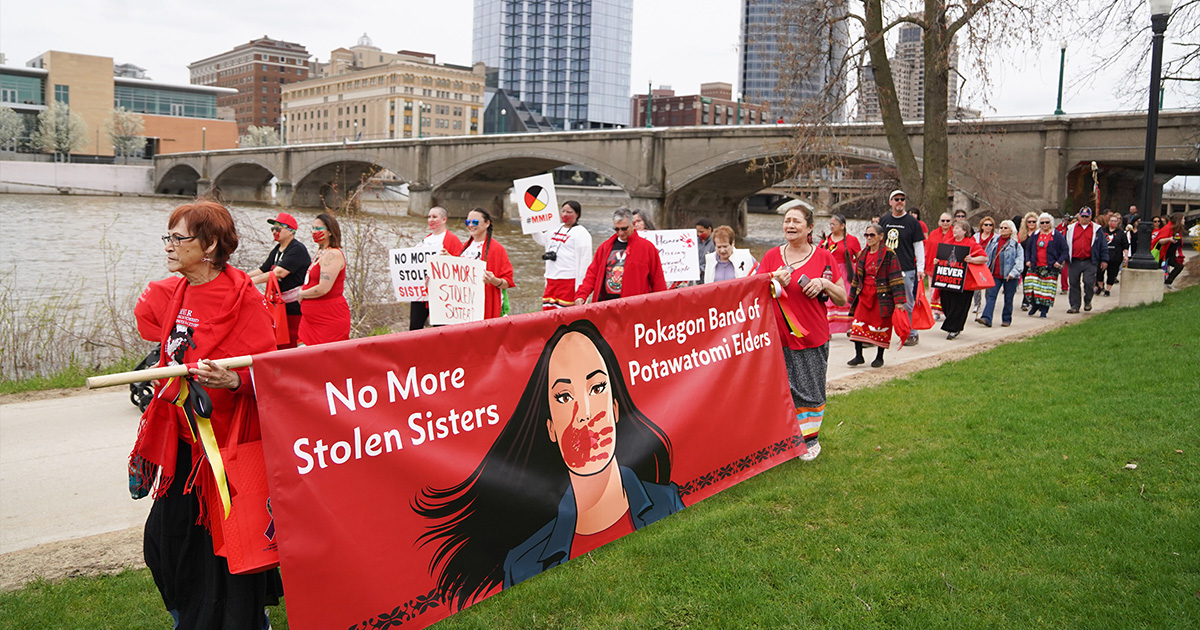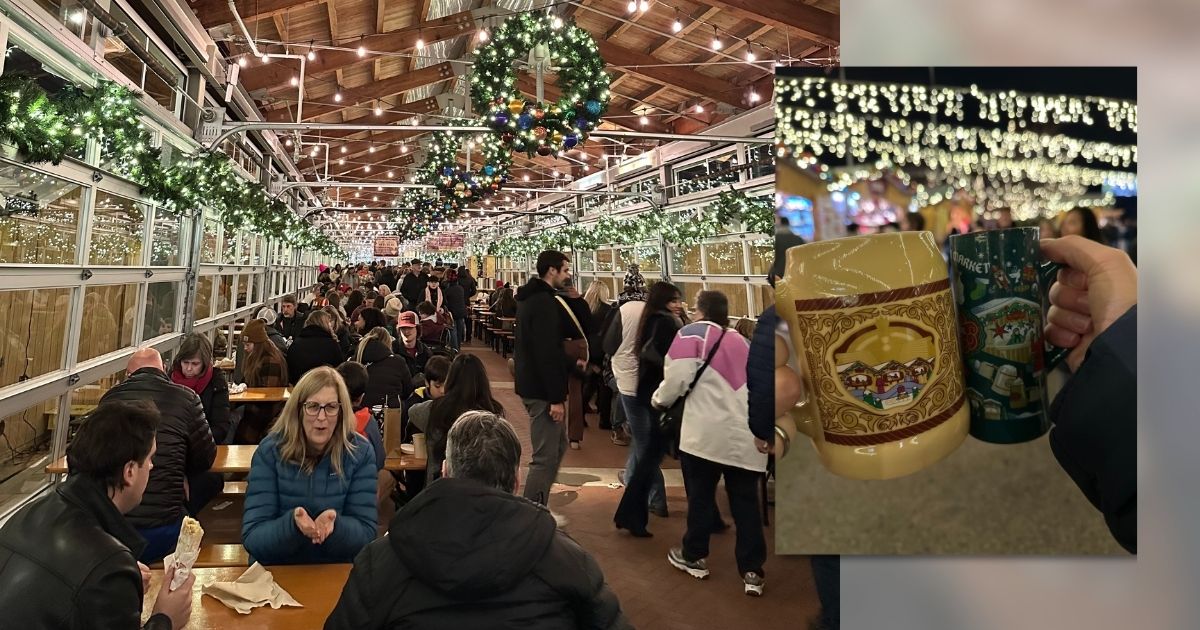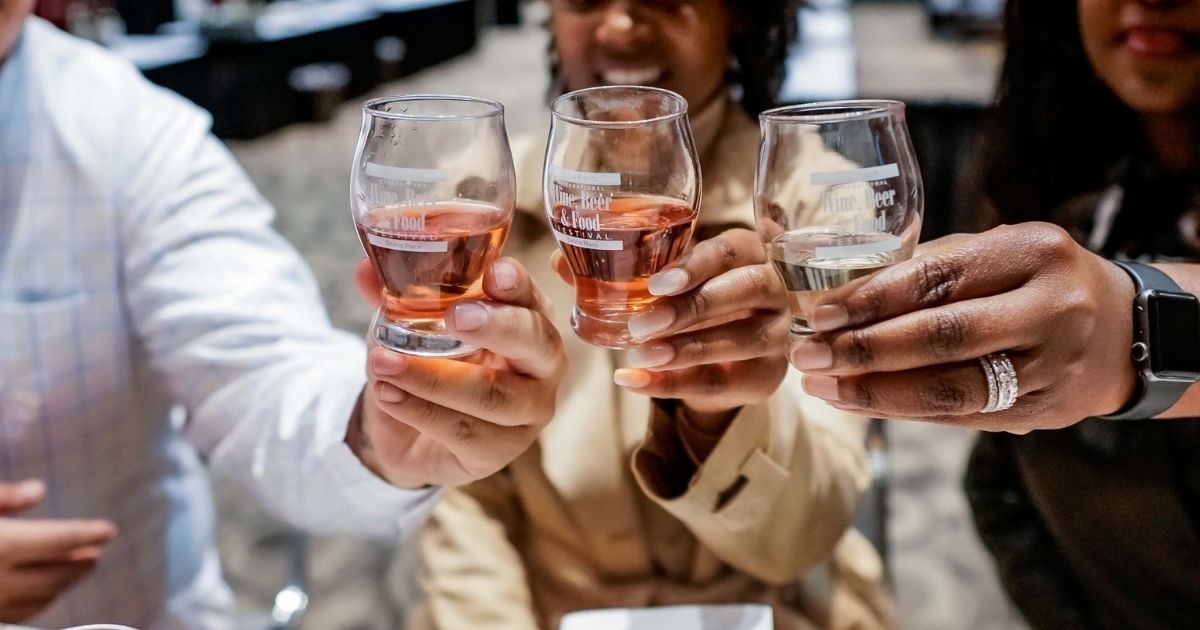Local Potawatomi tribes call for justice.
According to data from the U.S. Department of Justice, Native women face murder rates that are more than ten times that of the national average. In addition, there are more than 4,000 unsolved cases of missing Indigenous persons, with 55% of Native women having experienced domestic violence. These numbers— which are likely much higher in actuality, as many cases go unrecorded or unreported—highlight what many are striving to bring awareness to: That Native and Indigenous peoples face disproportionately high rates of violence.
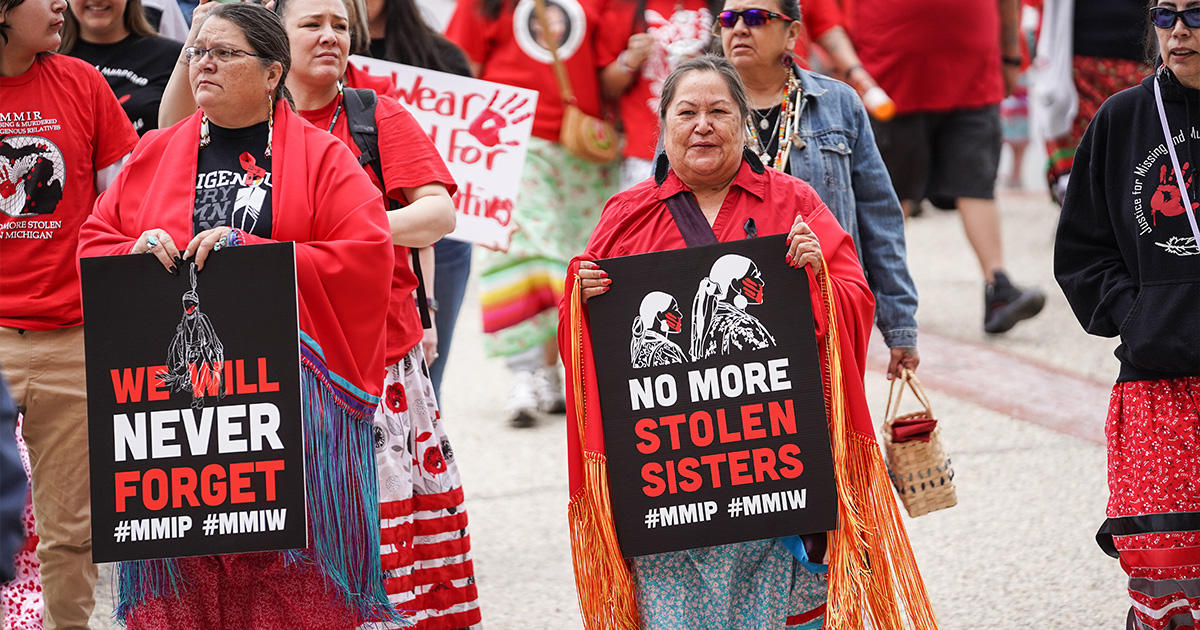
In an effort to bring awareness to this important issue, on Friday, May 5, 2023, the Nottawaseppi Huron Band of the Potawatomi (NHBP), Pokagon Band of Potawatomi and the Match-E-Be-Nash-She-Wish Band of Pottawatomi Indians will host the second March for Missing and Murdered Indigenous People (MMIP) through downtown Grand Rapids in observance of National Missing and Murdered Indigenous Persons Awareness Day.
"We host this event to bring awareness and educate people in Southwest Michigan on MMIP," said NHBP Tribal Council Coordinator and Tribal Member Robyn Burlingham, who sits on the event's task force. "The March for MMIP allows people a space to ask questions and provide those impacted by this issue a safe place to heal and connect."
Organizers explain that the event serves as an opportunity for Natives and non-Native allies to peacefully come together to shatter the silence and give voice to the thousands of Missing and Murdered Indigenous People who deserve to be a national priority.
Those interested in attending and participating in the (rain or shine) march are encouraged to gather at Ah-Nab-Awen Park (220 Front Ave NW), where the event kicks off at noon. Attendees can hear speakers representing the movement before embarking on the one-mile march through downtown Grand Rapids, which is planned to conclude at 3 p.m. People from all walks of life who wish to stand in solidarity to support of the movement are encouraged to join and wear red to honor those who are missing.
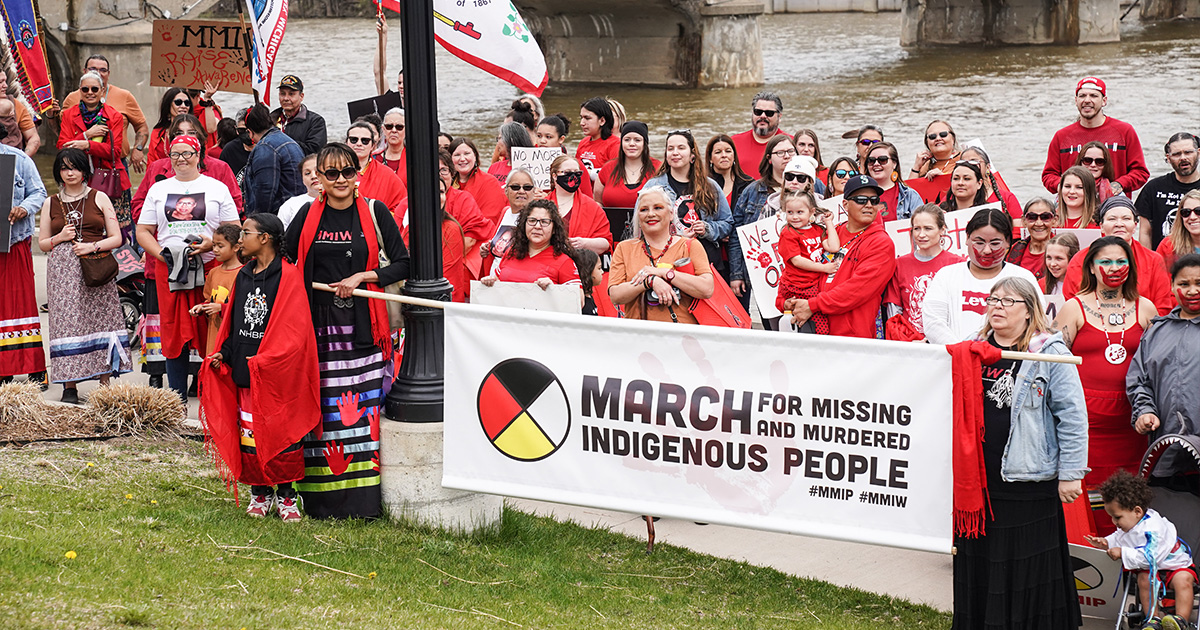
"Aanii Bozho {Hello}, people ask me what they need to do to participate and what some of the symbols mean for the MMIP March," said Virginia Sprague-Vanderband, Match-E-Be-Nash-She-Wish Tribal Council and member of the MMIP March task force. "Friday, May 5th, please come decked out in red with a smile on your face and an open heart.
"People ask us, 'Why red?' Many tribes believe that red is the only color spirits see. We hope that by wearing red, we can call back the missing spirits of Indigenous people so we can lay them to rest."
Sprague-Vanderband explained the red hand over the mouth symbol often seen associated with Missing and Murdered Indigenous Women (MMIW) was started for all the missing sisters whose voices are not heard, and is now used interchangeably with both MMIW/MMIP.
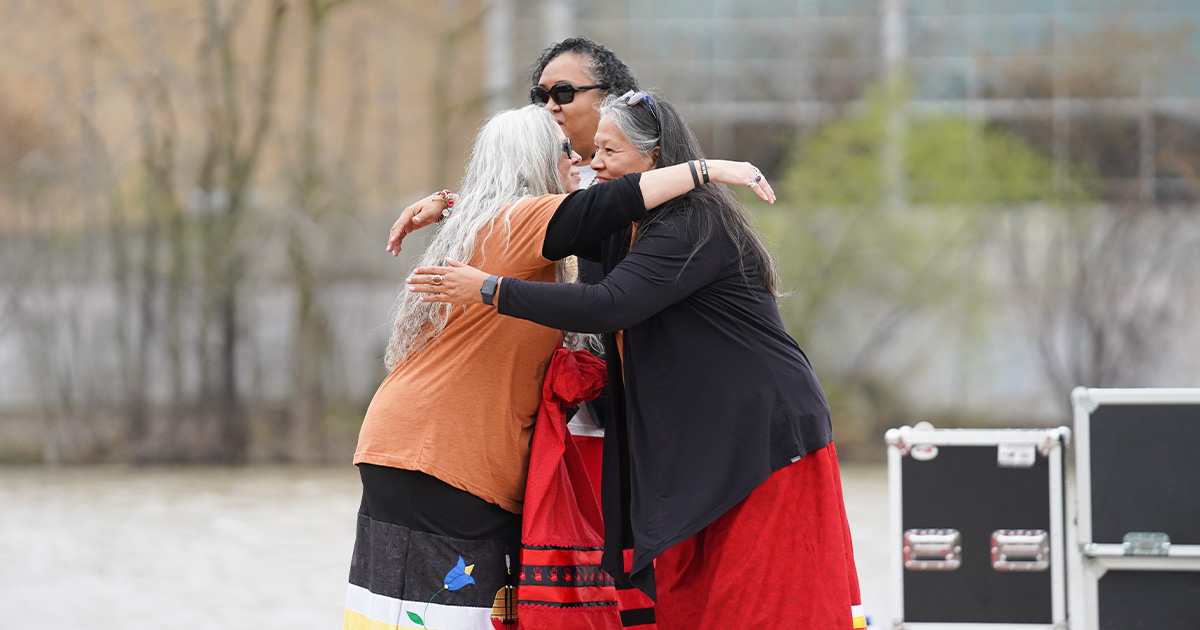
"We will wear red in our clothing and use it when creating our MMIW or MMIP posters, all in peaceful demonstration to lift our voices and say 'No More!'" Sprague-Vanderband said.
Victims services representatives from Michigan Tribes will be on-site for individuals who seek to learn about available resources and to answer questions. For the most up-to-date information on the 2023 MMIP March, please visit the Nottawaseppi Huron Band of the Potawatomi Facebook page.
Written by Sarah Suydam, Managing Editor for West Michigan Woman.
Photos Courtesy of the Nottawaseppi Huron Band of the Potawatomi.

